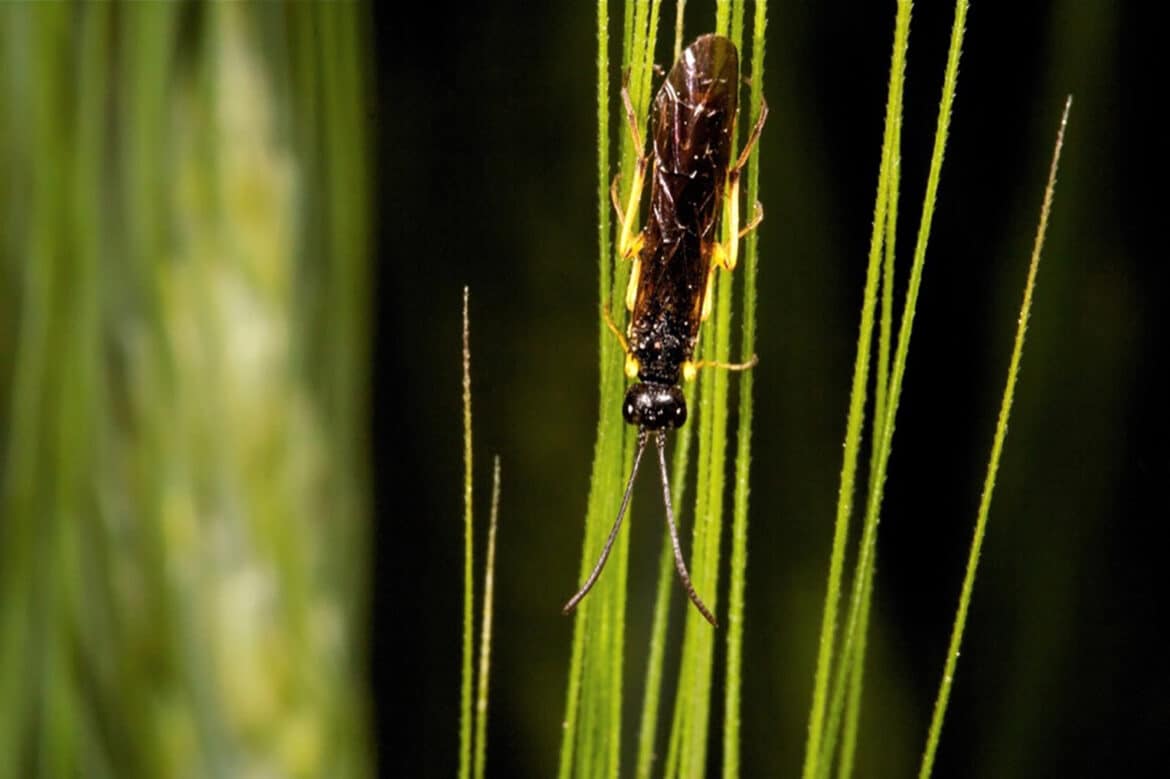A group of researchers from Montana State University, Colorado State University, Kansas State University, North Dakota State University, and the University of Nebraska-Lincoln along with the USDA-Agriculture Research Service are working to improve the understanding of producers’ needs considering the threat posed by the wheat stem sawfly. The “Great Plains Sawfly Survey Project” is the first step in a combined effort to manage the wheat pest.
The wheat stem sawfly has been a key pest in several locations throughout wheat production areas of the Great Plains, particularly over the last decade.
“The reasons for their increase in pest status are likely varied and not well understood,” said Jeff Bradshaw, professor of entomology and director doctor of Plant Health Program at UNL. “Equally challenging to wheat has been the slow pace of the development of solutions for this pest. The challenges in developing viable pest management solutions to this pest can be attributed, in part, to needs for increased wheat research support.”
‘TEAM SAWFLY’
Bradshaw has been studying the wheat stem sawfly in the Panhandle of Nebraska and primarily at the UNL High Plains Ag Lab north of Sidney, Neb. In the past couple of years, Bradshaw helped build a team called “Team Sawfly,” which includes Bradshaw, Cody Creech, Nebraska Extension dryland cropping specialist, Katherine Frels, UNL assistant professor and wheat breeder, and Amanda Easterly, UNL research assistant professor.
Along with the USDA-ARS, they are looking at a larger context for wheat research support for the wheat stem sawfly. This will include the entire wheat production system and the varied needs that growers have in managing a resilient cropping system, particularly in semi-arid environments.
“Many growers have tried different tools, tactics, and strategies to help manage or offset the impact that the wheat stem sawfly has had on their bottom line,” Bradshaw said. “Some actions have worked better than others, and some haven’t worked at all.”
The team will use feedback from growers via an online survey https://go.unl.edu/gpss to capture lessons learned in grower practices and ground solutions that have a greater likelihood of adoption.
The approach aims to gather information on the impact that wheat stem sawflies can have on the overall production system, which can vary greatly depending on location and environment.
“We can learn a great deal from growers’ experiences.”
To read more about the survey effort and to be part of the survey, visit https://go.unl.edu/gpss.
###
Nebraska Extension


